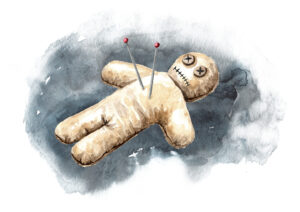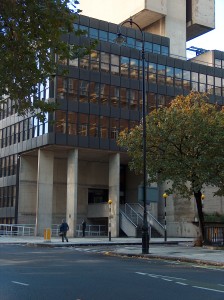UN Resolution Condemning Harmful Practices Related to Accusations of Witchcraft and Ritual Attacks (HPAWR) 
On 21 July 2021 The United Nations Human Rights Council adopted draft Resolution 47 entitled Elimination of harmful practices related to accusations of witchcraft and ritual attacks.
Although the resolution notes that there are religious minorities whose witchcraft practices are peaceful and legitimate, in many countries witchcraft-related beliefs and practices have resulted in serious violations of human rights including beatings, banishment, cutting of body parts, and amputation of limbs, torture and murder.
Human rights abuses due to belief in witchcraft is not just confined to any one continent; recently the Metropolitan Police warned that there was a rise in the UK of such practices. In 2019 over 2,000 children in the UK were identified as potential victims of abuse linked to faith-based ritual practices.
What is HPAWR?
In some communities, to be labelled a Witch equates to a death sentence, or at the very least might involve banishment, stigmatisation or torture.
Witchcraft-related persecution is a relatively recent phenomenon. Victims traditionally tend to belong to vulnerable and marginalised groups with limited resources to fight back against accusations of witchcraft. Older women, children and people with disabilities, particularly those suffering from albinism are the most obvious targets.
According to a recent report from the UN Human Rights Special Rapporteur, there have been at least 22,000 victims across 50 countries and 6 regions over a 10 year period (data compiled with the support of the UN Independent expert on the enjoyment of human rights by persons with albinism).
Who is harmed by HPAWR?
According to the Report, HPAWR manifests in various forms but two of these are particularly relevant to the current COVID pandemic:
(1) Accusations: the belief that an individual has supernatural powers that enables them to cause harm or damage to persons or things, often leads to accusations of witchcraft. This often results in attacks on the accused individual and their family, forced exorcism rituals (often violent) or banishment/stigmatisation.
(2) Ritual (and violent) attacks: the belief that the body parts of designated groups of people possess (supernatural) qualities that can facilitate the acquisition of fortune or cure sickness leads to violent attacks and ritual killings. These cases extend to ritual rape and grave desecration for the purpose of stealing and trafficking remains of a targeted person, often including persons with albinism.
The COVID pandemic and HPAWR
A UN Press Release from July 2020 highlights the fact that the number of witchcraft killings of people with albinism rose during the COVID pandemic. According to Ikponwosa Ero, the former UN independent expert on the rights of people with albinism:
Despite progress on many fronts, I was deeply saddened at the notable increase in reported cases of people with albinism being killed or attacked because of the mistaken believe that using their body parts in potions can bring good luck and wealth….Even more tragically, the majority of victims have been children.
Background to the Resolution
In 2017 the UN held the first-ever workshop to discuss witchcraft in relation to the abuse of human rights. The workshop brought together UN experts, academics and other stakeholders to discuss the violence associated with beliefs and practices associated with witchcraft and to highlight groups that are particularly vulnerable.
The workshop led to the publication in 2018 of the Report of the Independent Expert on the enjoyment of human rights by persons with albinism on the expert workshop on witchcraft and human rights.
Further reading
Lancaster University secures historic United Nations Resolution to stamp out witchcraft atrocities
Witchcraft abuse cases on the rise
Child abuse linked to faith or belief

